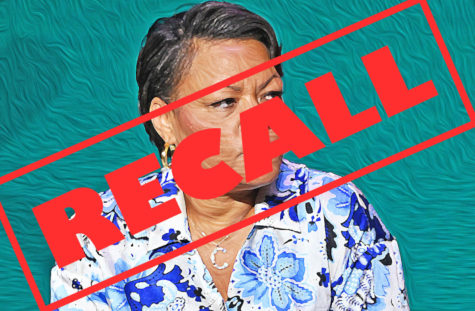OPINION | You should care about the Recall Cantrell campaign
November 2, 2022

Tulane University students have likely seen signs reading “Recall Cantrell” or “NOLAtoya” around New Orleans neighborhoods since returning to the city this fall. The visible emergence of the recent campaign to recall the mayor, LaToya Cantrell, may leave students wondering what sparked the public outrage and what the potential reelection means for them as Uptown residents.
There is plenty of information available online about the recall initiative, but the organizers’ main concerns are the city’s recent crime spike and the mayor’s travel spending. To force a recall election, petitioners must obtain signatures from 20% of the voting population in the district, by Feb. 22, 2023. The petitioners would need upwards of 50,000 signatures, and at the end of September they accumulated around 10,000. Petitioners claim they are not updating the website with current statistics because the signatures are coming in too quickly. However, this information has not been verified.
Mayor Cantrell, a Democrat, was reelected in 2021 with a 64.7% majority vote, beating her runner-up by a landslide. The recall petitioners claim that their efforts are non-partisan, however, one of the mayor’s spokespeople said the campaign was a Republican-backed effort.
The recall is alleged as a GOP movement for various reasons, including the major sources of the campaign’s funding. The two largest donors for the campaign are Donald “Boysie” Bollinger, who donated $10,000 in September, and Richard Farrell, who donated $20,000 over two payments in the month of September.
The recall campaign’s largest donor, Farrell, is a co-owner of Walk-Ons Bistreaux and Bar. Farrell is a registered Republican and has donated tens of thousands to the Republican Party of Louisiana over the years.
Bollinger served as Louisiana’s finance co-chair on Donald Trump’s presidential campaigns. Campaign finance records show he donates tens of thousands of dollars to Republican campaigns annually. Bollinger was also recently a guest speaker in an A.B. Freeman School of Business class, although he did not mention the recall campaign, to which he is the second-biggest donor.
Regardless of a student’s political party affiliation, those who take pride and joy in Mardi Gras, Cajun food, jazz and everything else that New Orleans has to offer also bear the civic responsibility of being aware of local news, particularly considering the overlap between the university and politically active community members.
Many students only live in New Orleans part-time for four short years, but they should still be relatively well-versed in the major political events of the city, such as a mayor recall campaign.
On-campus students may feel especially removed from the situation, since they are not burdened with homeowner responsibilities, such as dealing with trash collection, which is another one of the petitioner’s complaints. Understandably, residing on campus makes the “Tulane bubble” even stronger, and these students may feel even more detached from the city’s politics than those off campus.
Students need not lean one way or the other, but they should at the very least understand the issue that the New Orleanians are facing.






















Leave a Comment